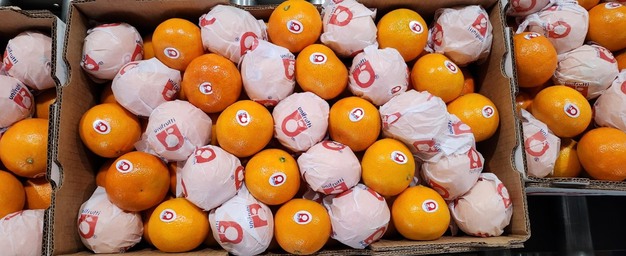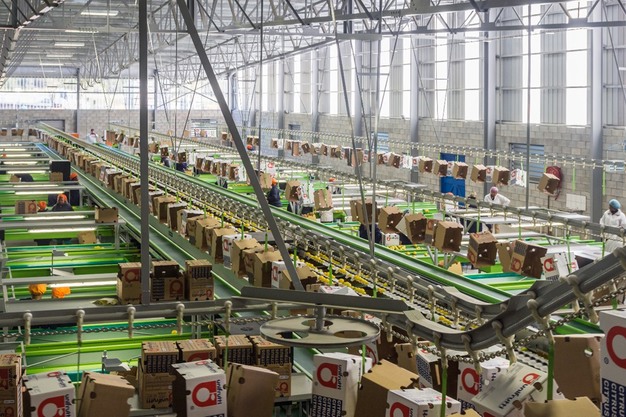The expectation is that as soon as the Egyptian presence lessens in the orange market, South African oranges are going to be very valuable: the crop isn't massive and a bit of a shortage is generally assumed, says Riaan Ellis, commercial manager at Unifrutti South Africa.
It's raining in the Cape, disrupting the harvest in a season which started in erratic fashion.
"Oranges look like it's going to have a good season. Brazil leaves a very large hole in processing oranges as a result to Asian greening disease in its orchards and the prices for processing oranges are on a record level. It differs across the country but everywhere it's the highest ever."
This creates a high price baseline for fresh fruit sales this season.
The only country of origin with significant available oranges is Egypt, primarily in markets not influenced by the difficulties of Red Sea shipping, viz Europe, Russia and the Middle East. There are Egyptian oranges in India and Bangladesh, sailed all around the Cape of Good Hope, but in the Far East currently, oranges are not abundant.

Springtime demand for late mandarins still outstrips South Africa's supply
"There's a fair expectation on the mandarin market for the reason that while there's more competition from our international counterparts than last season, the demand for late mandarin still increases," Ellis says.
A few seasons ago, apprehension existed of a mandarin oversupply, but in fact, he says, they'd been underestimating the strong pull created by the start of the Northern Hemisphere school year. Towards the end of August, for two months or even longer, South Africa doesn't have a lot of competition on the global mandarin market. "We've realised that despite the amount of late mandarins – and the volumes are still growing – there is a window when the volumes still fall short of demand."
The current middle period of the soft citrus season is fairly congested, he notes; in general Northern Hemisphere inhabitants prefer their summer fruit during the holidays.
And the good thing about mandarins, he remarks, is that they're price-elastic: unlike lemons, consumers will buy more when offered promotions and bigger availability whets the appetite for more. Even when Morocco and Spain start their early soft citrus varieties, consumers still prefer the taste of late mandarins. "During that late window, the demand still outstrips the supply."

 For more information:
For more information:
Riaan Ellis
Unifrutti
Tel: +27 21 852 8494
Email: [email protected]
http://www.unifrutti.co.za
